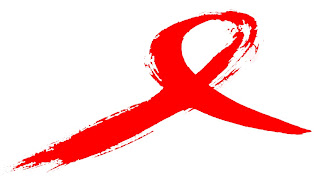Tens of thousands of people filed into a Johannesburg stadium for a 10-hour music extravaganza beamed to millions around the globe to mark World AIDS Day.
The concert at the 50,000-seater Ellis Park stadium featured 30 local and international artists performing, ranging from Ludacris to Peter Gabriel.
The event was organised by the 89-year-old Nelson Mandela's 46664 AIDS campaign, named after his prison number from his 27 years in jail during South Africa's apartheid regime.
Thirteen years after apartheid ended and after Mr Mandela became president in South Africa's first ever democratic elections, the country is now on the front line of the struggle against HIV.
Around 5.5 million of its 48 million people are infected - the world's worst rate, according to recent UN data.
Addressing the crowd, Mr Mandela urged people to stand up and take the fight against AIDS into their own hands.
"It is still alarming that for every person who receives treatment there are four others who are newly infected," said the Nobel laureate, after slowly walked to the podium with the aid of his wife and a walking stick.
"Here in South Africa we are making every effort to reach into communities because we believe the answer is in our hands.
"Yes, big ambitious plans are needed to deal with the epidemic. But what really matters are small acts of kindness ... such as protecting yourself," he said.
South Africa's deputy president Phumzile Mlambo-Ngcuka thanked the performers.
"It's about preventing the infections. It's about caring for the people who are already sick ... it's about rolling out the treatment, and ensuring we empower women who are at the frontline of the battle," she said.
Worldwide ceremonies
Earlier United Nations secretary-general Ban Ki-moon launched the 20th World AIDS Day at a midnight ceremony at St Bartholomew's Church in New York.
Mr Ban has called on governments around the world to allow universal access to HIV prevention and treatment.
He says the stigma associated with the disease is the biggest barrier towards combating AIDS.
"For AIDS is a disease unlike any other," he said.
"AIDS is a social issue, a human rights issue, an economic issue.
"It targets young adults, just as they should be contributing to economic development, intellectual growth and bringing up the children."
Growing complacency
Activists are trying to keep the battle against HIV in the public eye on in the face of growing complacency amid progress in treating and slowing the spread of the disease.
Even the Miss World beauty pageant on the Chinese holiday island of Sanya was enlisted to get out the message that the disease daily kills some 6,000 people.
Chinese President Hu Jintao appeared on the front page of major state-controlled newspapers shaking the hand of a woman HIV carrier, a day after the UN warned that as many as 50 million Chinese are at risk of contracting HIV/AIDS.
December 1 has become a time of grim stocktaking as AIDS campaigners worldwide sound the alarm over the disease's rampage through Africa, the threat it poses to Asia and former Soviet republics, and the risks to vulnerable communities such as sex workers, drug users and gay men.
In Australia, campaigners have warned that complacency after earlier success in fighting HIV/AIDS risks giving rise to a new wave of infections.
AIDS awareness educator Vince Lovegrove is calling for a new campaign aimed at a new generation.
"This is the moment it all could go astray. This is the moment when it can become a pandemic," he said.
Australian government figures show that by the end of 2006, 26,267 Australians had been diagnosed with HIV and 10,l25 people had been diagnosed with AIDS, with 6,723 having died.
- AFP/BBC/ABC


No comments:
Post a Comment